Ewa Andrejczuk
Table-To-Text generation and pre-training with TabT5
Oct 17, 2022
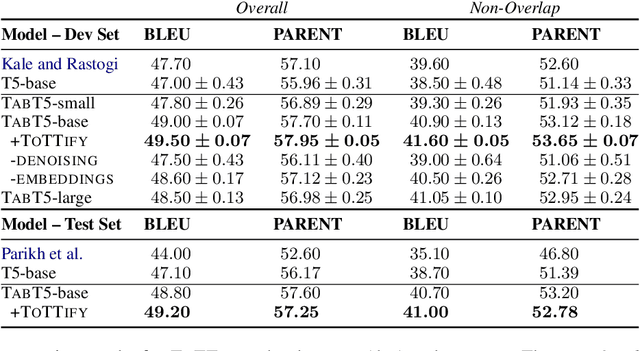
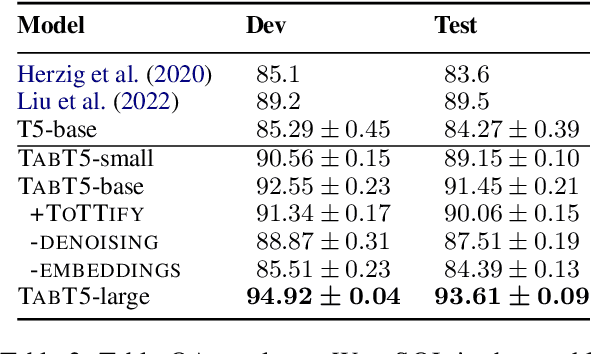
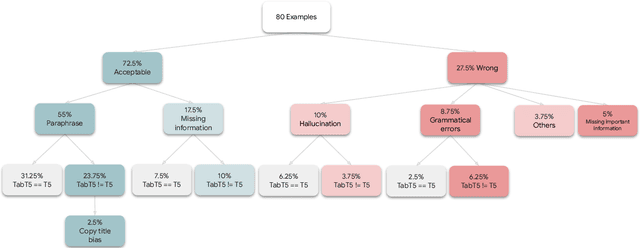
Abstract:Encoder-only transformer models have been successfully applied to different table understanding tasks, as in TAPAS (Herzig et al., 2020). A major limitation of these architectures is that they are constrained to classification-like tasks such as cell selection or entailment detection. We present TABT5, an encoder-decoder model that generates natural language text based on tables and textual inputs. TABT5 overcomes the encoder-only limitation by incorporating a decoder component and leverages the input structure with table specific embeddings and pre-training. TABT5 achieves new state-of-the-art results on several domains, including spreadsheet formula prediction with a 15% increase in sequence accuracy, QA with a 2.5% increase in sequence accuracy and data-to-text generation with a 2.5% increase in BLEU.
Synergistic Team Composition: A Computational Approach to Foster Diversity in Teams
Sep 26, 2019
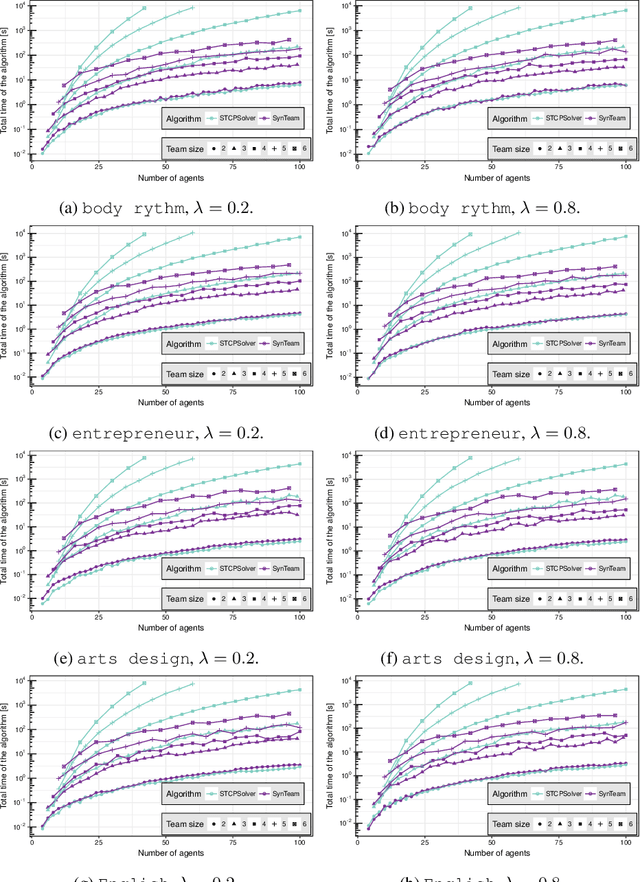

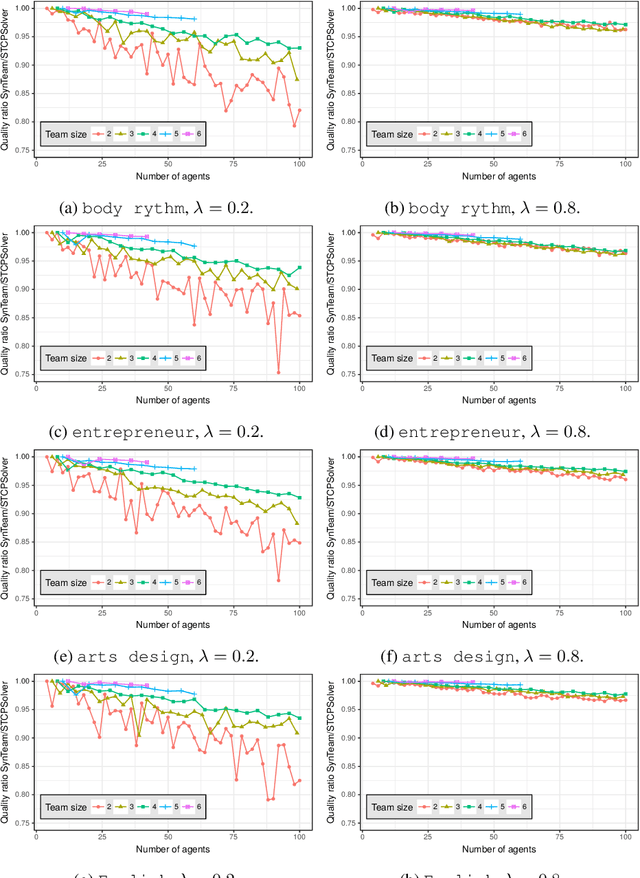
Abstract:Co-operative learning in heterogeneous teams refers to learning methods in which teams are organised both to accomplish academic tasks and for individuals to gain knowledge. Competencies, personality and the gender of team members are key factors that influence team performance. Here, we introduce a team composition problem, the so-called synergistic team composition problem (STCP), which incorporates such key factors when arranging teams. Thus, the goal of the STCP is to partition a set of individuals into a set of synergistic teams: teams that are diverse in personality and gender and whose members cover all required competencies to complete a task. Furthermore, the STCP requires that all teams are balanced in that they are expected to exhibit similar performances when completing the task. We propose two efficient algorithms to solve the STCP. Our first algorithm is based on a linear programming formulation and is appropriate to solve small instances of the problem. Our second algorithm is an anytime heuristic that is effective for large instances of the STCP. Finally, we thoroughly study the computational properties of both algorithms in an educational context when grouping students in a classroom into teams using actual-world data.
* Accepted version
Synergistic Team Composition
Feb 27, 2017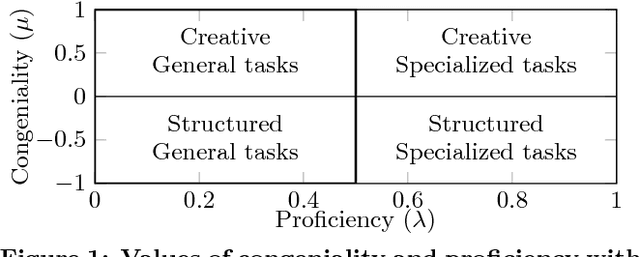
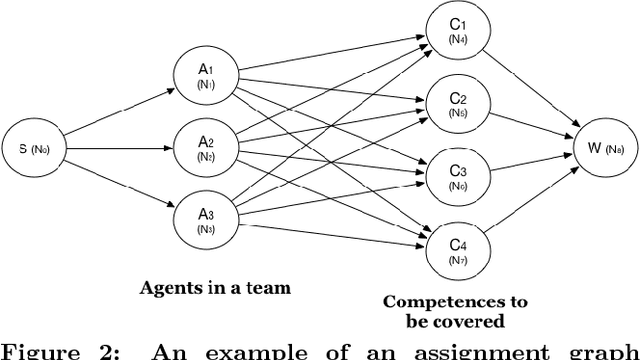
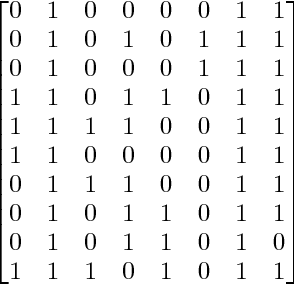
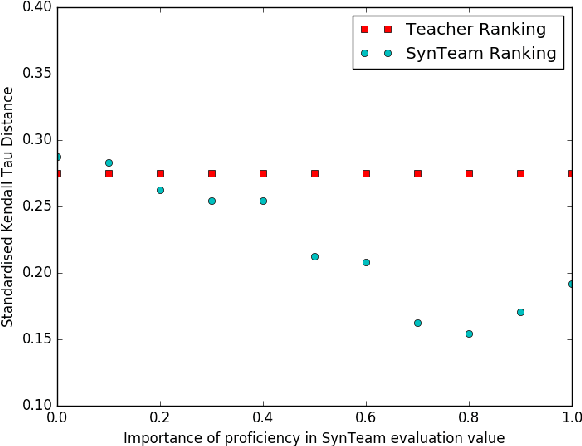
Abstract:Effective teams are crucial for organisations, especially in environments that require teams to be constantly created and dismantled, such as software development, scientific experiments, crowd-sourcing, or the classroom. Key factors influencing team performance are competences and personality of team members. Hence, we present a computational model to compose proficient and congenial teams based on individuals' personalities and their competences to perform tasks of different nature. With this purpose, we extend Wilde's post-Jungian method for team composition, which solely employs individuals' personalities. The aim of this study is to create a model to partition agents into teams that are balanced in competences, personality and gender. Finally, we present some preliminary empirical results that we obtained when analysing student performance. Results show the benefits of a more informed team composition that exploits individuals' competences besides information about their personalities.
 Add to Chrome
Add to Chrome Add to Firefox
Add to Firefox Add to Edge
Add to Edge